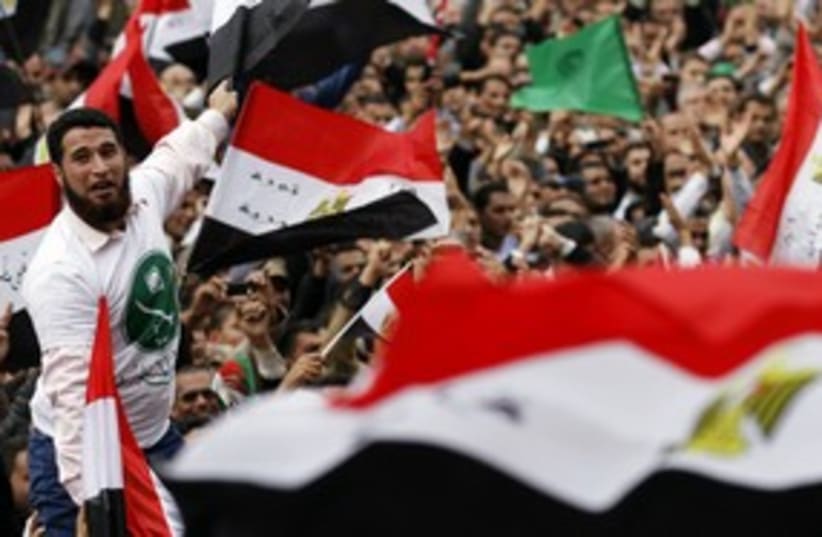Anti-military rallies are held across EgyptIn the port city of Alexandria, thousands of Islamists and youth groups also held a rally and planned to head to a military base in a show of protest against the army."We went down to demand change but they removed Mubarak and brought the Field Marshal," protesters in Alexandria chanted, referring to Mubarak's former defense minister who now heads the military council that is supposed to guide Egypt to democracy.Thousands also gathered in the Northern Sinai and Upper Egypt regions to protest but they called for an Islamic state, not a civilian state, the demand of protesters in the capital and Alexandria.Despite Friday's street outcry against the army, many ordinary Egyptians feel their country needs the military command to preside firmly over the transitional period.Despite the unified call against the ruling generals, Tahrir square was split between the Muslim Brotherhood's Freedom and Justice Party and their harder-line Salafi rivals, represented by several political parties.The two set up separate sound stages and organized their own speeches and chants, only joining forces for Friday prayers."Our aims are one but there are differences between us as Islamist groups," said Abdullah Galil, a Salafi youth.Liberal and leftist parties were also marching to Tahrir to take part in the rally. "There is no alternative but a return to the demands of the revolution which we must put back on track through a unified political voice," Mohamed Anis, co-founder of the liberal mainstream Justice Party, said.
Thousands protest in Tahrir against army rule
Protesters demand withdrawal of proposal to protect army; failure to resolve dispute could impact November ballot.

Anti-military rallies are held across EgyptIn the port city of Alexandria, thousands of Islamists and youth groups also held a rally and planned to head to a military base in a show of protest against the army."We went down to demand change but they removed Mubarak and brought the Field Marshal," protesters in Alexandria chanted, referring to Mubarak's former defense minister who now heads the military council that is supposed to guide Egypt to democracy.Thousands also gathered in the Northern Sinai and Upper Egypt regions to protest but they called for an Islamic state, not a civilian state, the demand of protesters in the capital and Alexandria.Despite Friday's street outcry against the army, many ordinary Egyptians feel their country needs the military command to preside firmly over the transitional period.Despite the unified call against the ruling generals, Tahrir square was split between the Muslim Brotherhood's Freedom and Justice Party and their harder-line Salafi rivals, represented by several political parties.The two set up separate sound stages and organized their own speeches and chants, only joining forces for Friday prayers."Our aims are one but there are differences between us as Islamist groups," said Abdullah Galil, a Salafi youth.Liberal and leftist parties were also marching to Tahrir to take part in the rally. "There is no alternative but a return to the demands of the revolution which we must put back on track through a unified political voice," Mohamed Anis, co-founder of the liberal mainstream Justice Party, said.